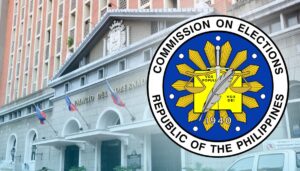Ten people were reported to have been killed in separate incidents by unidentified gunmen or in police operations all over Metro Manila on Wednesday. A barangay captain in Tondo was shot by two gunmen on a motorcycle at 8 p.m. Earlier that day, also in Tondo, three men allegedly shot it out with cops in a buy-bust operation, though CCTV footage seemed to show no such firefight in the alley where the suspects were found mortally wounded. The victims were dead on arrival at a hospital; their relatives disputed the police’s “nanlaban” (resisting arrest) claim. The footage also showed one of the cops redirecting a CCTV camera away from the police operation.
In Malabon, Pasay and Quezon City, killers riding tandem on a motorcycle also struck. A cardboard sign was thrown beside the body of the victim in Tramo, Pasay, with the handwritten words: “Marami pa ang susunod na mamamatay… Umiwas na kayo sa droga” (Many more will die… Stay away from drugs).
The families of these latest casualties join the many thousands of others all over the country who have been orphaned and left bereft by the violent death of family members under the government’s draconian war on drugs. But the survivors must feel doubly anguished at the news that, merely hours after the lives of their loved ones were snuffed out, either by emboldened unidentified killers or the police, Malacañang would declare an end to “Operation Tokhang,” the controversial centerpiece program of President Duterte’s administration that has spawned the wave of extrajudicial killings swamping the country.
On Thursday, the Philippine National Police announced that it was officially terminating Operation Tokhang after Mr. Duterte ordered that all antidrug operations be henceforth handled by the Philippine Drug Enforcement Agency (PDEA). It was the second time in 14 months that Operation Tokhang was suspended. Late in January, responding to the outrage generated by news that cops on a supposed drug raid had kidnapped and then murdered a Korean businessman right inside Camp Crame, the headquarters of the Philippine National Police, Malacañang said it was halting the program in order to first root out rogue cops.
The spate of killings appeared to decline during the lull, but some five weeks later, Operation Tokhang was resumed—with apparently greater vigor. The bloodbath that occurred as the year wore on proved to be bigger and more gruesome in scope—32 dead in one blow in Bulacan, for instance, followed by the successive killings of teenagers whose deaths, per CCTV footage and eyewitness accounts, didn’t jibe with police claims that the young victims resisted arrest and had to be put down.
Despite the public outcry, and Malacañang’s efforts at damage control by promising a thorough investigation into these incidents, Operation Tokhang seemed secure, and was even being escalated. The Department of Interior and Local Government and the PNP jointly proposed the dangerous move of installing “drop boxes” in barangays nationwide that would allow residents to anonymously report alleged drug users and other criminal elements in their neighborhoods.
That proposal, thankfully, has now been dropped, in line with Operation Tokhang’s disbanding. It took a steep drop in the President’s survey numbers to jolt Malacañang and make it see the public’s increasing restiveness at the terrible costs of the war on drugs. PDEA Director General Aaron Aquino has now vowed a “less bloody” campaign by his office, an implicit admission of how the PNP’s abuses and heavy-handedness have boomeranged on the administration.
But, at this late, blood-soaked point, is terminating Operation Tokhang enough? Activist Renato Reyes Jr. brings up an important reminder: “There must be accountability in the deaths of thousands of drug suspects and innocents. There can be no moving on from the carnage that the war on drugs has created if there is no justice.”


